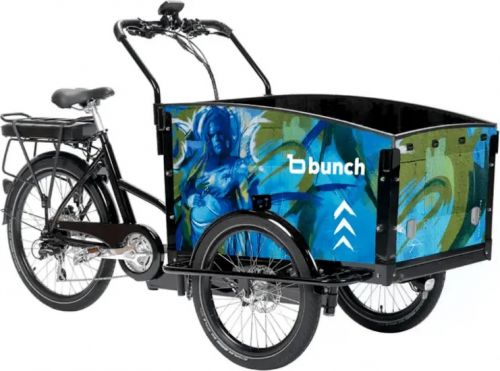WASHINGTON (BRAIN) — The steel used in e-bikes, indoor trainers, exercycles and some hand tools is now subject to the Trump administration's Section 232 tariffs, which are up to 50%.
An unpublished notice from a Department of Commerce bureau lists hundreds of HTUS import codes for steel derivative product categories that are now subject to the tariff. The list includes 8711.60.00, the import code that applies to e-bikes (as well as to e-cargo bikes and electric motorcycles), and 9506.91.00, which in the past has been applied to exercise bikes and fluid trainers, according to a PeopleForBikes guide to HTUS codes used in the industry. The new list also includes hand tools like pliers and hex keys, and ball bearings and roller bearings that the bike industry imports.
Most of the new codes are for industrial tooling, tractors, and some electronic parts, as well as some household appliances.
The steel content of these products will be subject to the 50% tariff if imported from most nations, 25% if imported from the United Kingdom. The steel content is not subject to reciprocal tariffs, but the full value of the import is subject to other tariffs in place.
"In the case of China, the entire value of an e-bike is also subject to 25% 301 tariffs and 20% IEEPA fentanyl tariffs, just not the 10% reciprocal tariff currently in place under the 90-day pause," said Matt Moore, PeopleForBikes' policy counsel.
The steel tariff applies unless the steel was melted and poured in the U.S. and assembled elsewhere. The list was made public Friday as an unpublished notice by the Federal Register. It is set to be included in the full Federal Register being published Tuesday. The new tariffs took effect at 12:01 a.m Monday.
Most e-bikes have aluminum or carbon fiber frames, but a few brands import steel-framed e-bikes, including Marin, Benno, Schwinn and Brompton. (Brompton, which manufactures in the U.K., presumably would pay a 25% tariff.) Some electric cargo bikes from Yuba, Surly, Xtracycle and Bunch Bikes also have steel frames.
Some importers have told BRAIN that their factories itemize the material costs of their products on invoices, with a separate line item for value added by labor. Then the importer pays the steel and/or aluminum tariff only on the material cost, which is much smaller than the cost of an entire frame, for example. However, other importers said they expect to pay the tariff on their cost for the steel product, be it a frame or a bolt.
Importers were seeking answers on Monday.
"The question now is how granular we will need to go," said Matt VanEnkevort, president and CEO of Marin Bikes. "For instance, can we report the frame and fork content, or do we need to get down to the level of hardware (derailleur pivots, motor internals, battery mounts, water bottle bolts, etc)," he asked.
Moore said, "Customs valuation is typically the 'price paid or payable' for the subject goods. So for instance if you buy a bolt, the value is the price you paid, not the raw material cost for the bolt supplier." Moore pointed to a Customs and Border Patrol FAQ: cbp.gov/trade/programs-administration/entry-summary/232-tariffs-aluminum-and-steel-faqs.
Aaron Powell, the founder and CEO of Bunch Bikes, said it appears that the steel content in e-cargo bikes he imports would be subject to the new tariff.
However, it shouldn't be an issue for him because Powell recently expedited a shipment from China to receive bikes before increased reciprocal tariffs on Chinese imports were set to take effect August 8. The bikes arrived in time for that deadline, but then the Trump administration delayed implementation of that tariff by 90 days. Powell said the delay was frustrating in light of the efforts he made to speed up the shipment, but now he's relieved because the order showed up before the unexpected steel tariffs took effect.
Powell noted that the Bureau of Industry and Security, the Commerce Department bureau that determined the new list of derivatives, runs the process of adjusting the derivatives list, including seeking industry input. Nucor Corp., a steel manufacturer suggested that 8711.60.00 be added to the list. There were no comments from the bike industry. "We dropped the ball," he said.
Powell suspects Nucor was targeting electric motorcycles, not e-bikes, which are imported under the same codes. "Now is a great time to request our own e-bike HTS code from the powers that be and disengage our e-bike imports from the electric motorcycle imports," he said.
Powell expects to switch to aluminum frames on future Bunch Bikes. However, he predicted that the administration will add a new list of derivatives to be subject to the aluminum tariff before long.
An earlier list of steel and aluminum derivatives from China subject to tariff included bike chains and some cables. Some other bike products that are imported under more general codes, such as some workstands, also have been subject to material tariffs since the spring. The Section 232 tariff originally applied to imports from China but was later expanded to the rest of the world.


